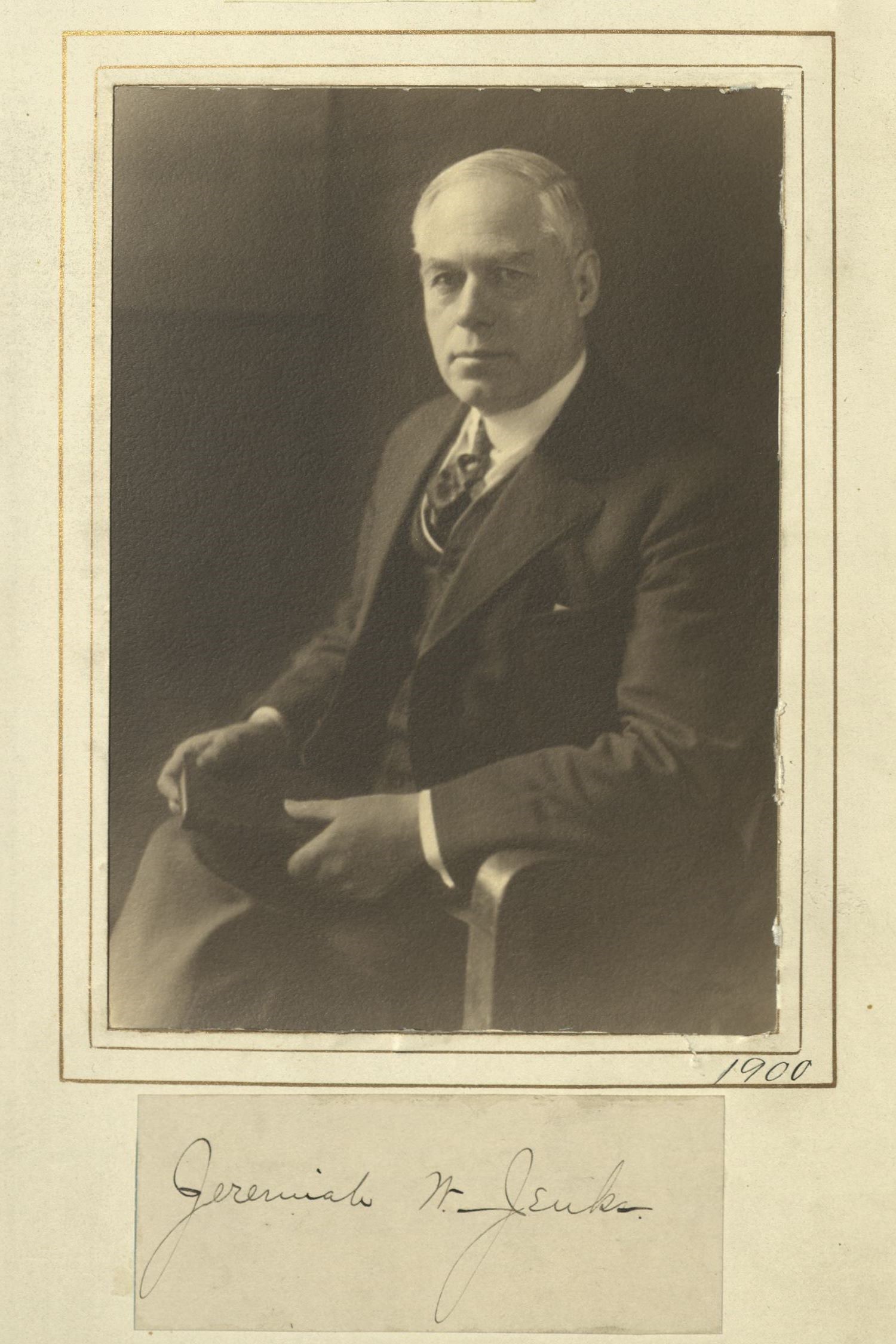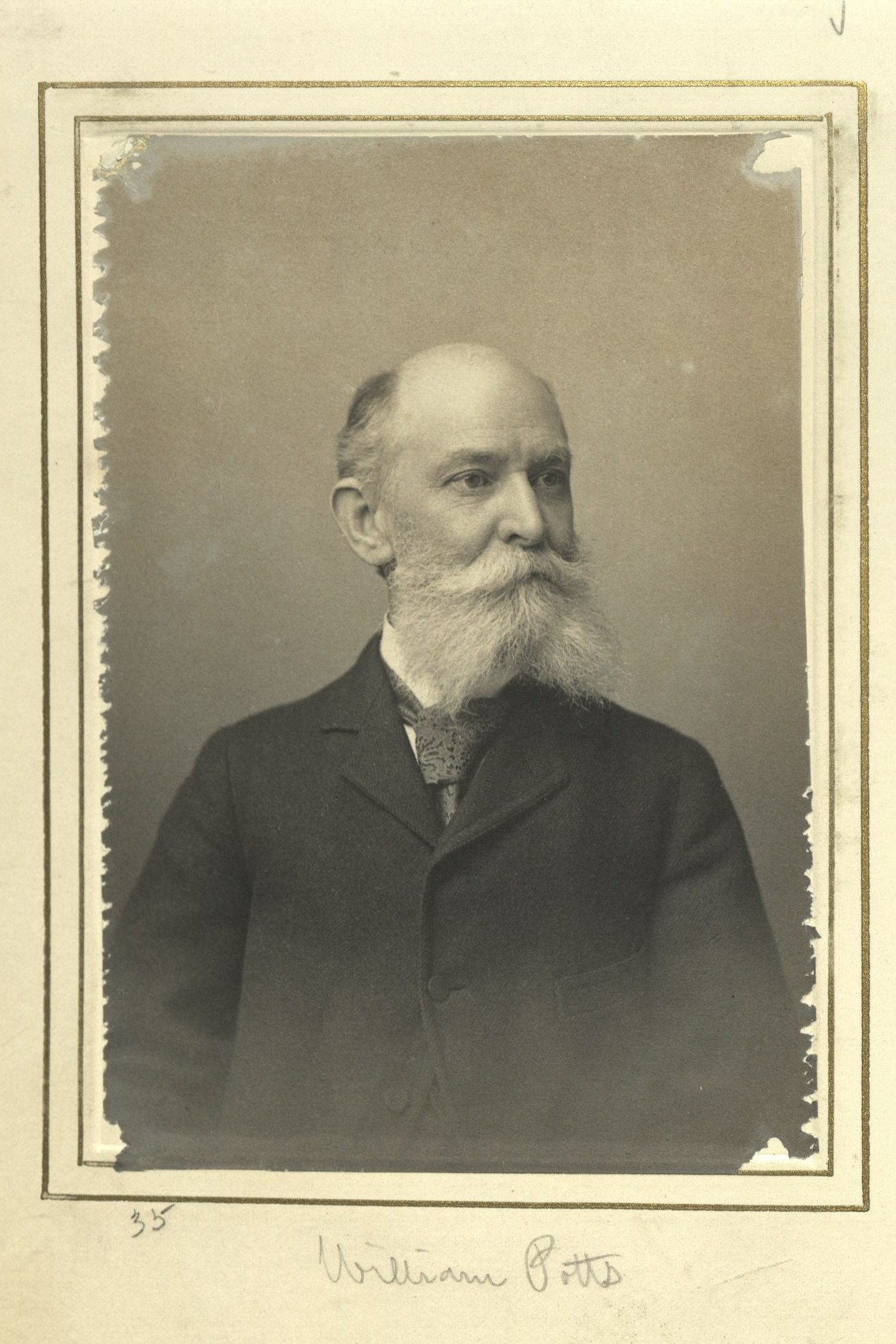Member Directory,
1847 - 1922
Jeremiah W. Jenks
Professor
Centurion, 1900–1929
William Potts and Franklin H. Giddings
Saint Clair, Michigan
New York (Manhattan), New York
Age forty-three
Saint Clair, Michigan

Century Memorial
If last year was a spectacular period in economic history, it was also an eccentric period in the history of economists. There had, it is true, been earlier occasions on which the economic doctors divided angrily in regard to a great financial boom or a great financial crash. Our own panic of 1893 was ascribed by one group to threatened free-silver-coinage, by another to denial of free-coinage. These little differences across the consulting-table are as old as medical diagnosis or political economy. But it was reserved for 1929 to present a fairly compact body of economic teachers (some of high repute) explaining publicly, at the very crest of the wildest of all speculative manias, that the stock market was right, that this was an “economic era” which had abolished old traditions, that the “outside public” knew its job, that nothing was overvalued, and that stocks were certain to sell indefinitely higher. Some of this group of educators, in line with professorial habit, not only set forth the facts to their college classes and to the general public, but published books to prove that the market’s top had not been reached. One such informing text-book issued from the press after the 50-per cent. collapse in Stock Exchange prices had begun.
It must in fairness be said that opinion, in the fraternity of economists as a whole, was sound if somewhat voiceless. In private conversation, they appraised correctly the joyride of the speculative public. Among the economic teachers who received with old-fashioned contempt the notion of a New Era, in which the fallacies of a generation ago had become the axioms of today, was Jeremiah Whipple Jenks. This was not because the mind of Professor Jenks was tied down to old-time economic orthodoxy. On the contrary, he was often a free-lance. At the height of the Anti-Trust movement of the years before the war, he was able to write that, if monopoly “wins out” in any line of industry, such a result “will be proof that it is the cost-cheapening unit”; “its public character will then be beyond dispute.” Control by the nation “will be as natural as it will be necessary,” and such control will be effective supervision, not outright government ownership. Our professor would not even accept the free-trade dogma; he so far parted company with his orthodox colleagues as to say in 1921 that thereafter we should “need more than ever the protection of a high tariff.”
But Jenks’ reasoning was never based on assumption. Whether his conclusion is to be considered right or wrong, its invariable basis was appeal to common sense. As far back as 1908, twelve years before the Eighteenth Amendment, he wrote that our laws “must avoid extravagance, must be adapted to the people and the conditions and the time”; if not, then one may reckon on their being “both unwise and unjust.” Two years after the armistice, when the atmosphere of Europe was surcharged with fantastic nostrums for repairing depreciated currencies overnight and painlessly, Jenks wrote that there was only one way through which such countries could bring their currencies into order—“by increased production and exports, reduced consumption and imports, liquidation of government indebtedness through drastic taxation, retirement of vast amounts of paper currency, and ultimate removal of all restrictions on the free movement of gold.” This hard path, on which the Europe of 1920 and 1921 had turned its back, the Europe of today has had to follow. There is little wonder that an economic thinker of such practical mentality should have been among the first of that interesting group of private experts whom the sick governments have in recent years called personally into consultation, to prescribe the operation necessary for their return to economic health.
Alexander Dana Noyes
1930 Century Association Yearbook



